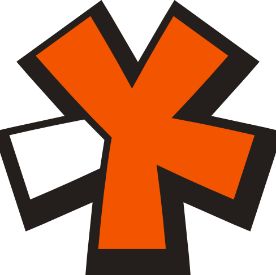Showing all posts tagged "Java Development"
War of the Tools: Most Popular Developer Tools for Java
Software development is much like a refined art or craft. You need the right tools to create your masterpiece. As any dedicated Java programmer worth his beans will tell you: It’s all about picking the ‘appropriate’ tools.
Appropriate being the operative word here. Because a quick search will reveal that there are several tools that make the top 10 list for Java development. But these are popular choices and not necessarily the ones that are right for you. So how do you decide? One way of deciding this is to identify your concerns for every phase of the development cycle and narrow down on the tools that make your life easier. These tools can certainly help in writing richer, error-free code, providing the much-needed support for coding and development.
To begin with, you will need a Java Development Kit (JDK) supported by the following:
1. Eclipse:

Open-source integrated development environment (IDE). Eclipse is famous for its large developer community and vast choice of plugins. While it helps with code completion, refactoring and syntax checking, one of the great advantages of Eclipse is that it allows developers to combine language support. For instance, it also provides a C/C++ and PHP IDE.
You can download Eclipse here: http://www.eclipse.org/downloads/packages/eclipse-ide-java-developers/neon2
2. Gradle

Again an open source build tool, Gradle automates the building, testing, publishing, deployment, and more of software as well as generating static websites or documentation. It combines all that is good in ANT ™ and Maven. It is also the standard build tool for Android.
Get it here: https://gradle.org/install
3. IntelliJ Idea:

Marketed as the most Intelligent Java IDE, IntelliJ certainly boosts innovation and productivity. It has features like ‘Smart Code Completion’ and ‘On-the-fly Code Analysis’; and also offers advanced support for web and mobile development. The .NET development framework allows you to execute safe and reliable shopping carts.
In fact, it beat Eclipse in a developer survey by a margin of 5% showing the rising popularity.
4. YourKit:

YourKit Java Profiler is a profiling tool that allows to generate CPU and Memory profiles of running applications with no noticeable overhead. YourKit provides on-demand profiling during both development and production, free embedding into production, and seamless IDE and application server integration.
You can download YourKit here https://www.yourkit.com/java/profiler/download/
5. JUnit:

Unit testing framework for Java. Helps with writing and running tests. What sets apart JUnit from the rest is that it provides repeatable, white box testing.
6. FindBugs:

FindBugs is a static code analysis tool that analyses the bytecode and detects a wide range of problems. It also classifies the gravity of the bug from scary, scariest to ‘of concern’. Available as a standalone GUI or a plugin. 100% availability is a pre-requisite – as your business has to be open for customers 24 hours a day and this can be achieved using appropriate topology.
The current version of FindBugs is 3.0.1. FindBugs requires JRE (or JDK) 1.7.0 or later to run but it can analyze programs compiled for any version of Java, from 1.0 to 1.8.
Get the FindBugs tool here: http://findbugs.sourceforge.net/
7. Mockito

A mock library that helps in the creation, verification, and stubbing of mocks. Mockito is used so that a dummy functionality can be added to a mock interface that can be used in unit testing.
View this tutorial to find out how to use this: http://www.tutorialspoint.com/mockito/
8. Selenium:

Selenium automates the browsers and it is very useful to developers who use this along with testing frameworks for large scale application testing.
Download it here: http://www.seleniumhq.org/download/
9. VisualVM:

JVM monitor. This all-in-one troubleshooting tool comes with the JDK. Download the latest version here: https://visualvm.github.io/
10. Jenkins:

This is a self-contained Java-based program ready to run out-of-the-box. Provides continuous integration services for software development. It is customizable with more than 600 plugins.
11. Clover:

Code coverage tool that runs in your IDE or continuous integration system and includes test optimization to make tests run faster and fail sooner.
What are your favorite tools? Any other that you would like to mention? Please share in the comments.
Posted on February 23rd, 2017

